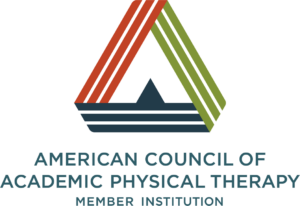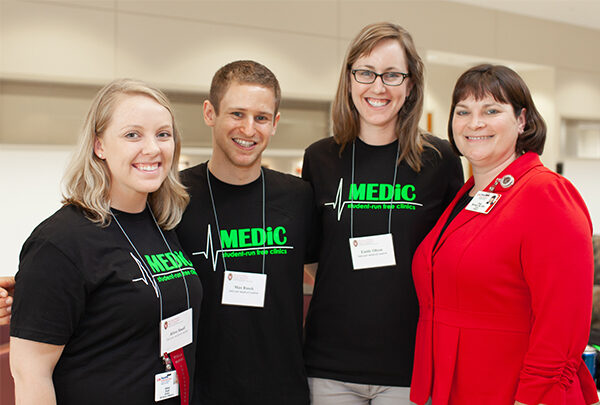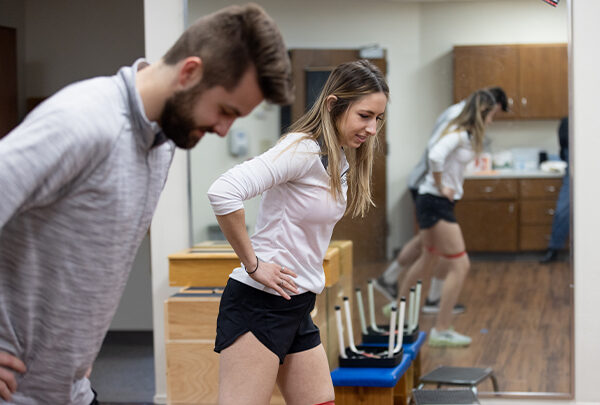
DPT Curriculum
The UW–Madison Doctor of Physical Therapy (DPT) curriculum focuses on the study of diagnosis and interventions for improving dysfunctional human movement and is built upon a foundation of scientific inquiry and critical appraisal of published works.
Classroom and clinical education incorporate concern for the dignity of the individual by emphasizing integration of the patient into their own environment. Participation in service learning opportunities is a required part of seminar courses.
Lifelong learning, as well as continued academic and professional growth, are encouraged and celebrated. We want our graduates to be innovative thinkers and leaders in meeting the future needs of patients and strengthening the physical therapy profession.
Curriculum Model
Systems and lifespan models, along with modified problem-oriented, traditional and case-based models are integrated throughout the curriculum, applying the nomenclature and organization.
For example, in the basic science and clinical science tracks, a systems model is used to organize content, emphasizing structure-function relationships and development across the lifespan. A problem-oriented model based on scientific method is used to guide critical inquiry, clinical decision-making and patient management. These models are integrated with relevant content and applied during the clinical internships within the clinical practice track.
Across our curriculum, we emphasize evidence-based practice, integration across domains, generalist practice, ethical practice, critical thinking and problem-solving, cultural diversity, patient-centered care, clinical medicine, prevention/wellness, life-long learning and openness to new ideas.
Academic Tracks
The UW–Madison Doctor of Physical Therapy curriculum includes three integrated tracks:
- Basic science
- Clinical science
- Clinical practice
Each track consists of sequential and progressive course work, and students take all of the courses in each track. The curriculum is initially weighted heavier in the basic science track, ending with emphasis in the clinical practice track. Most semesters incorporate courses from all three tracks.
 Generic Abilities and Professional Behaviors
Generic Abilities and Professional Behaviors
Students are expected to fully meet ten criteria for physical therapy-specific generic abilities and professional behavior by the conclusion of the program, making steady and satisfactory progress towards these goals over time:
- Commitment to learning
- Interpersonal skills
- Communication skills
- Effective use of time and resources
- Use of constructive feedback
- Problem-solving
- Professionalism
- Responsibility
- Critical thinking
- Stress management
MEDiC Clinics
The MEDiC is an opportunity for DPT students to work interprofessionally with peers from the MD, physician assistant, nursing and pharmacy programs. DPT students are required to participate in one MEDiC clinic per semester.
MEDiC is a student-run program which includes seven health clinics throughout Madison. MEDiC's goal is to improve the health of underserved populations while providing educational opportunities for UW–Madison health professions students.
About MEDiC
